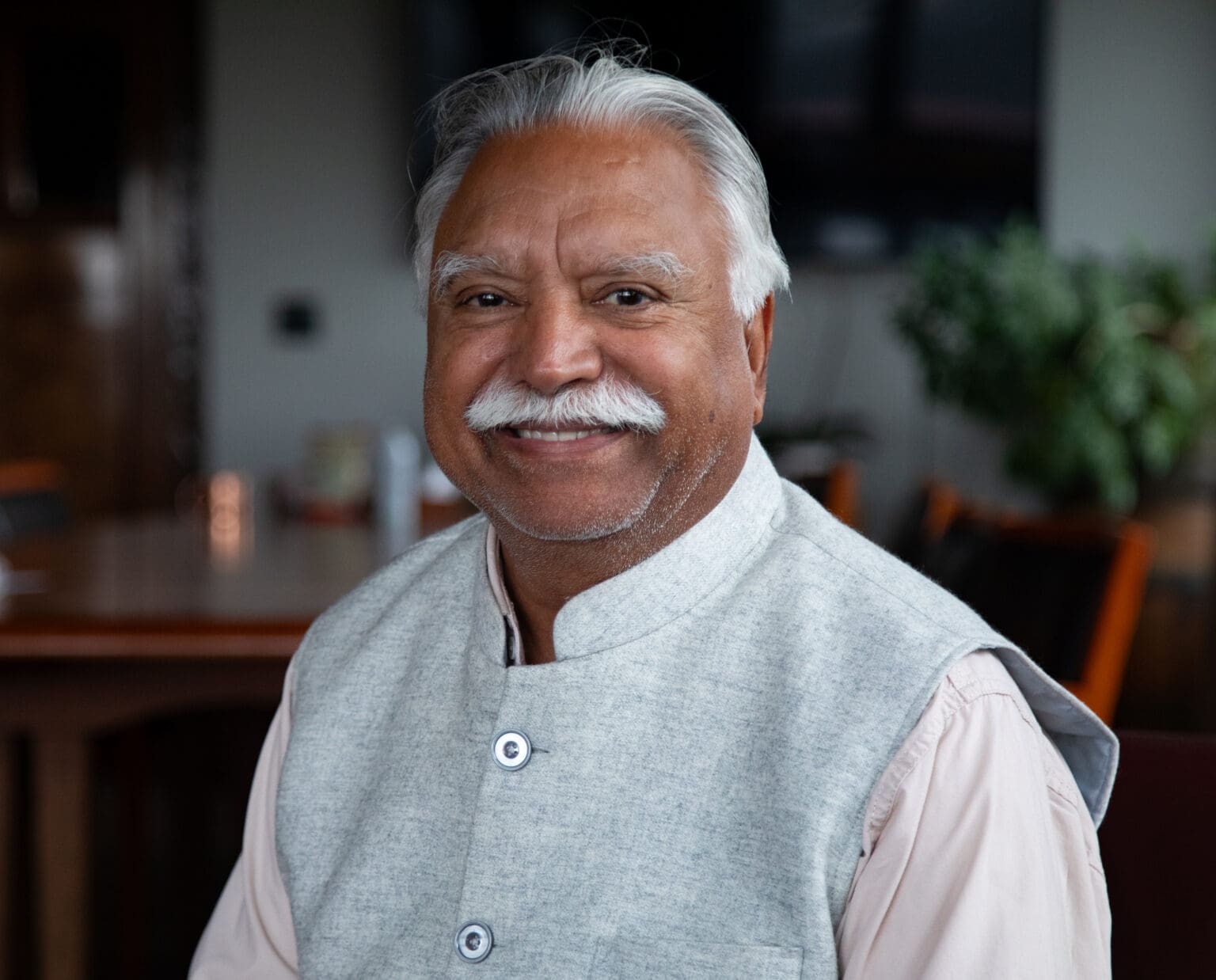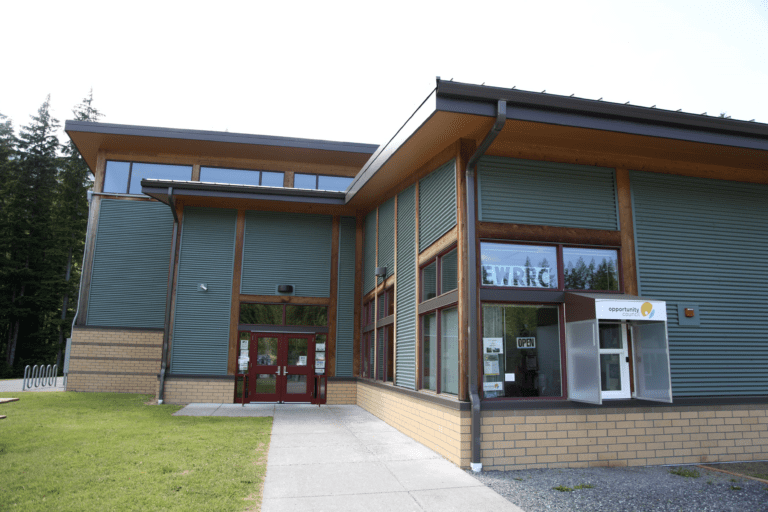For the second consecutive year, Cascadia Daily News in July issued a call for reader responses to the Citizens Agenda’s simple prompt: What do you want candidates to be talking about as they compete for votes?
The goal is to have you, the reader, establish the framework for election issues, rather than candidates relying on their own “talking points” or personal agendas. The Citizens Agenda strategy has been employed by many U.S. and Canadian media outlets over the past two decades, with favorable results; publications have consistently reported campaign coverage that’s more relatable and meaningful to readers.
This election season, Northwest Washington readers once again responded enthusiastically, submitting hundreds of questions, which CDN narrowed down to about 100. These were then printed and published online at cascadiadaily.com, where readers voted for their own top questions grouped into three subject categories: local government, crime and justice, and education.
The selected reader questions for local government and law and justice were put directly to candidates subject to CDN endorsement interviews; their answers are published below.
Whatcom County executive
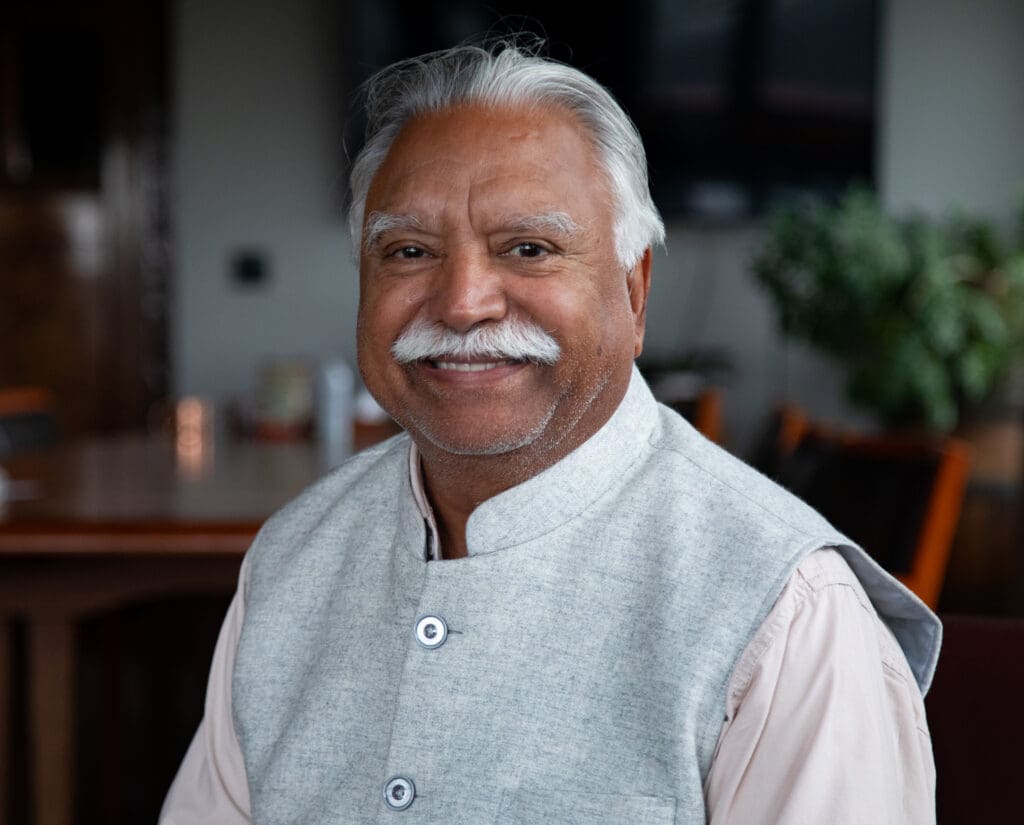
Satpal Sidhu
- Age: 73
- Residence: Lynden
- Occupation: Whatcom County executive
- Experience: 1 term as executive; 4 years Whatcom County Council
Question #1 (Homelessness)
The homelessness crisis isn’t unique to our community. It’s driven by a regional housing affordability crisis, national drug epidemic, and lack of behavioral health capacity. Local governments do not have adequate resources to address the root causes. We cannot create housing affordability in an isolated city or county, nor can we cut off the supplies of cheap meth/opioids. Our strategy is: prevention — helping those on the brink of losing their home; intervention — providing emergency assistance to those who are homeless; and stabilization — providing support to keep from falling into homelessness again. We are making significant investments in behavioral health and low-income housing, and we will be able to do even more if the public safety tax is approved. Success can be measured by the number of people brought in off the streets or kept off the street, but that’s not something which is visible to the public.
Question #2 (Lake Whatcom)
The Lake Whatcom watershed is critically important for both the county and the City of Bellingham. We invest approximately $10 million annually to improve water quality and reduce phosphorous inflow. Whatcom County has instituted special rules which govern new construction and tree removal in the watershed. Working together with the city and other partners, approximately 10,000 acres have been protected in the watershed. I understand that there is a perceived threat to Bellingham’s drinking water. However, water quality is monitored continuously, and annual reports show that Bellingham’s drinking water is clean and safe for consumption. The Department of Ecology made the city and county aware that the lake does not meet the state’s dissolved oxygen level requirements (a result of excess phosphorous). That requirement is not a determinant of drinking water quality. We will continue to take steps to prevent pollution from new development and work to reduce impacts from existing neighborhoods.
Question #3 (PeaceHealth services/local control)
I share the community’s concerns about these cuts. Like many other citizens, I also reached out to Charles Prosper, CEO of PeaceHealth Northwest, to make sure that he is fully aware of the impact that they are having. I am glad to learn that PeaceHealth has reconsidered and will be restoring palliative care. At the same time, it’s important to keep in mind the larger picture. PeaceHealth has a history of over 100 years in our county, and they provide invaluable services to our community. There is no doubt in my mind that PeaceHealth uses its tax-exempt status to contribute to community benefits, including a financial help fund for people who cannot afford to pay for their treatment costs. PeaceHealth is not the only hospital operator that is making difficult cuts. This is a nationwide phenomenon, and hospitals need to adapt to survive.
Question #4 (PeaceHealth tax-exempt status)
It’s not ideal to rely on one institution for so many critical services. However, this harsh reality of having only one hospital is not unique to Whatcom County. Many counties are in a similar situation. Please remember, PeaceHealth has done many great things for our community. I worked very closely with them through the worst days of the pandemic. They really came through and prioritized the community’s health over financial considerations. One of the reasons they are cutting services is the financial situation that developed over the past several years. I believe that a call for retribution like threatening the tax-exempt status of the organization is unlikely to result in an outcome that is beneficial to the people who most need these services. There are state laws about such arbitrary actions. PeaceHealth’s change of mind about palliative care shows that they are receptive to public feedback. I favor a collaborative approach.
Question #5 (Affordable housing)
There is no single or quick remedy. The affordable housing crisis is a consequence of state and national economic policies and priorities over the past 50 years. Recently the state legislature addressed some underlying causes in land-use policies, creating much-needed zoning law flexibilities and GMA restrictions. This is a step in the right direction, but there will be a lag of several years before any impacts are seen. Local initiatives have very limited impact on housing market forces. The size and configuration of the American dream home needs to change. I would require new developments to have a substantial share of small lots (<4000 sq.ft.) with home sizes ~800-1200 sq.ft. More duplexes/fourplexes should part of the mix and implemented in existing single-family zones, as many lots can be redeveloped. We need a wetland bank for off-site mitigation within cities to make more land available for housing. We shall consider building brand new cities rather than the UGA process of continuous growth only.
Dan Purdy
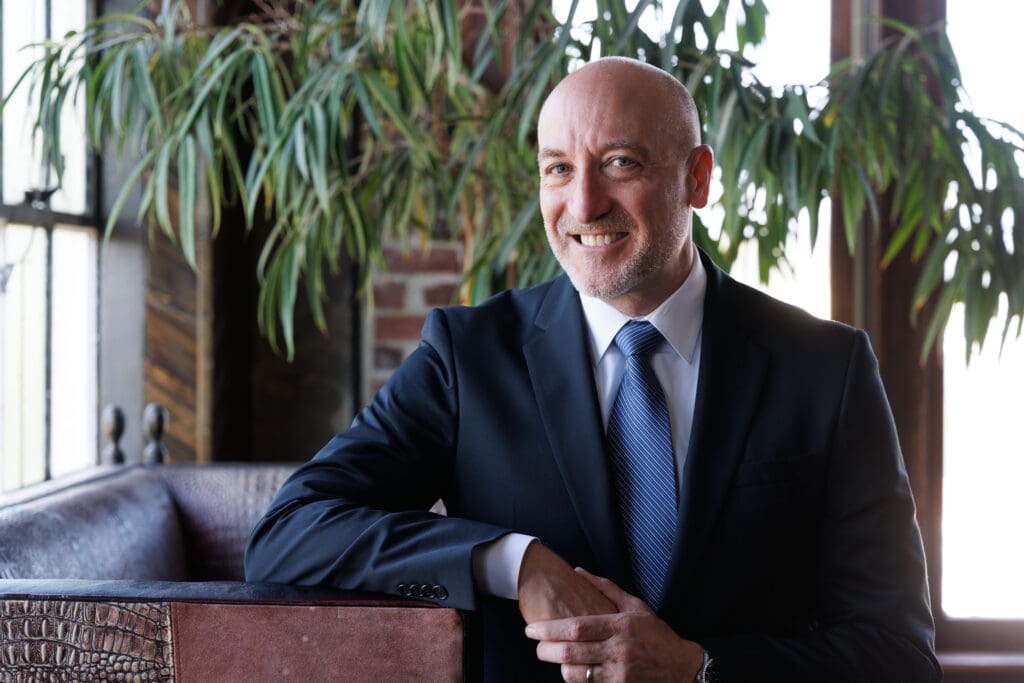
- Age: 50
- Residence: Lynden
- Occupation: Director of partnerships, Cultivate Advisors
- Experience: More than 25 years in the business sector
Question #1 (Homelessness)
Homelessness is a multi-faceted, complex problem that requires comprehensive, multi-faceted solutions. A lack of affordable housing, poverty, substance abuse and mental health challenges all contribute to Bellingham’s homelessness crisis. Whatcom County serves as a strategic partner to Bellingham. Everyone succeeds when the number of people experiencing homelessness decreases and the number of people receiving rehabilitation assistance increases. This will remain a top priority over all four years of my term. We will balance public safety and responsible spending with a compassionately firm approach to homelessness. We will fund effective programs and increase rehabilitation. When placing people in housing programs, they must receive comprehensive support, such as: mental/behavioral health services; addiction treatment; job and life skills training. Illegal campers will either enter a formal program or navigate our legal system.
Question #2 (Lake Whatcom)
The goal is to preserve our potable water reservoir and to reduce phosphorus. This requires both watershed (on land) and in-lake (underwater) management. First, I’ll advocate for underwater chemical treatments or mechanical apparatus to address phosphorus in legacy sediments. Second, we’ll fund effective watershed projects, maintenance, outreach and education, homeowner mitigation incentives, residential retrofits, and water quality monitoring. This helps mitigate run-off from fertilizers, snow removal chemicals, fuels, etc. Third, we’ll review the County’s potential acquisition of key watershed buffer lands, to address unnecessary development within natural waterways.
Question #3 (PeaceHealth services/local control)
The Bellingham Mayor and City Council addressed PeaceHealth’s tax-exempt status in 2014. At the time, there was significant opposition to status removal and the parties negotiated a deal. Whatcom County has considerable demand for health care programs, and I expect our strategic partners, like PeaceHealth, to deliver every day. As County Executive, I’ll coordinate with our cities to develop stronger service level agreements, accountability metrics, performance guarantees, scorecards, dashboards, etc. I will advocate for increased health care options in Whatcom County, including a sustainable Palliative Care Program. I will also seek commitments for a suitable replacement to the discontinued Allergy/Asthma Program. As our population grows, we must develop a deeper bench of well-trained health care workers. Let’s find ways and means to increase the economic opportunity for new health care systems, facilities, and jobseekers.
Question #4 (PeaceHealth tax-exempt status)
As Executive, I will work with the cities to reset, redefine and realign the relationship with PeaceHealth from an overall county perspective. On one hand, they have heavily invested in new health facilities and services: Women’s Health Clinic (17,000 SF at 220 Birchwood Avenue, Bellingham); Primary Care Services and Walk-in Urgent Care (24,400 SF at 8844 Benson Road, Lynden); and the Emergency Department’s expansion at PeaceHealth Southwest Medical Center campus. On the other hand, PeaceHealth must continually meet the health care requirements, stated objectives, expectations, and the requisite service levels demanded by the community. When they cannot (or will not) do so, the community should be remunerated through tax dollars; like any other business. Today, many people experience limited health care options, waiting lists, and difficulty finding appointments for routine checkups. Under my leadership, I’ll ensure that PeaceHealth, or its successors, are contractually clear on their obligations to our cities and county.
Question #5 (Affordable housing)
Creating affordable housing is a multiple-step process. We begin by advocating for pro-growth policies in the non-agricultural, established Urban Growth Areas. We must streamline the permitting process, address performance standards, and appropriately staff departments. Let’s workshop an automatic permit approval process. Certain types of permits could be automatically issued within a reasonable time frame, unless the department presents a legitimate challenge (e.g., incomplete application, code violation, legal issue, etc.). We continue with deregulation. A collective review of our current zoning laws and reductions in regulation will encourage various types of housing development. A review of our land use policies is in order as well, as we may have opportunities to beneficially repurpose surplus public land. These actions will stimulate high-wage job creation and boost economic prosperity. Establishing new industries, attracting larger companies, and strengthening existing ones also promotes higher income, stable jobs.
Bellingham mayor
Seth Fleetwood

- Age: 60
- Residence: Bellingham (South Hill neighborhood)
- Occupation: Bellingham mayor
- Experience: 1 term as Bellingham mayor; 4 years Bellingham City Council; 8 years Whatcom County Council
Question #1 (Homelessness)
We lack sufficient homes for a broad assortment of people with differing needs, resources and abilities. We also lack sufficient resources for those suffering from mental health disorders and addiction. It is a systemic problem delivered by multiple causes exacerbated by the pandemic. The solutions will require greater resources than Bellingham alone can muster. It will require federal and state assistance for facilities, services and homes. Multiple metrics guide our work in preventing homelessness, providing crisis intervention and creating long-term stability, including monitoring the annual point in time count, the number of families suffering homelessness, people served at drop-in shelters, and people receiving financial crisis assistance. Bellingham has increased respite services during extreme weather, tripled shelter services, increased access to mental health services, and built permanently subsidized affordable housing. I support models with staff, services and rules; without them problems arise. I support enforcement against “illegal campers” — those that violate laws should be cited and held accountable.
Question #2 (Lake Whatcom)
Lake Whatcom is our most valuable resource, yet historically abused by human activities and failures of foresight decades ago that included zoning decisions permitting extensive development precisely where we needed to maintain pristine tree canopy. Dramatically increased attention over the past 25 years has established a successful joint protection plan. To continue our commitment, three actions we will emphasize:
- Property acquisition: Purchasing watershed property to preserve land in its natural condition, funded through fees on utility bills. To date we have purchased thousands of acres, numbers that have dramatically increased during my administration. We continue to use creative methods to expedite purchases.
- Stormwater retrofits: We have spent millions and continue to invest in innovative facilities in the watershed to capture and filter stormwater runoff from the built environment.
- Homeowner Incentive Program: Helping homeowners convert their landscape to act more like natural systems to capture stormwater runoff and provide onsite filtration.
Question #3 (PeaceHealth services/local control) and Question #4 (PeaceHealth tax-exempt status)
I respect the voices of those who perceive a negative consequence of having one hospital in our community, but also recognize the exceptional quality of care provided by PeaceHealth.
PeaceHealth contributes innumerable benefits to our community, including operating an exceptional emergency room that turns away nobody. During my tenure as Mayor, and particularly during the pandemic, I have found their leadership to be highly professional, collaborative, and responsive. My understanding in conversations with their chief executive is that PeaceHealth Bellingham maintains considerable autonomy to base decisions that are locally responsive and do not require corporate oversight from headquarters. Clearly, they are responsive to community concerns as was demonstrated by the recent news concerning re-instatement of outpatient palliative care.
I was a member of the Bellingham City Council in 2013 when the question of whether to revoke PeaceHealth’s tax exempt status was being considered. It generated considerable community discussion at the time. PeaceHealth was persuasive in reminding us that as a not-for-profit corporation, all revenues generated are re-invested into their core mission of providing care to those in need, and that to lose that exempt status would result in a reduction of resources to provide care to Whatcom County.
Question #5 (Affordable housing)
I am advocating for what I call a Radical Affordability Plan, denoting ‘radical’ simply to contrast with a normative approach. I am working with our planning director, and others with expertise in housing affordability, to document essential program elements. All agree it requires a comprehensive, multi-faceted approach that would create a healthy mix of home types, sizes and prices. It will draw from recommendations in our Countywide Housing Affordability Taskforce, from Whatcom Housing Alliance and more. The timing is good as we embark on our comprehensive plan update, requiring adoption by June 2025. The plan will incorporate new state requirements that provide for increased densities and new Comprehensive Plan provisions that require detail as to how we will accomplish affordability. The plan will describe the means by which we increase supply of market rate housing, how we stabilize rent, and how we use our robust local public funds to support permanently subsidized housing.
Kim Lund
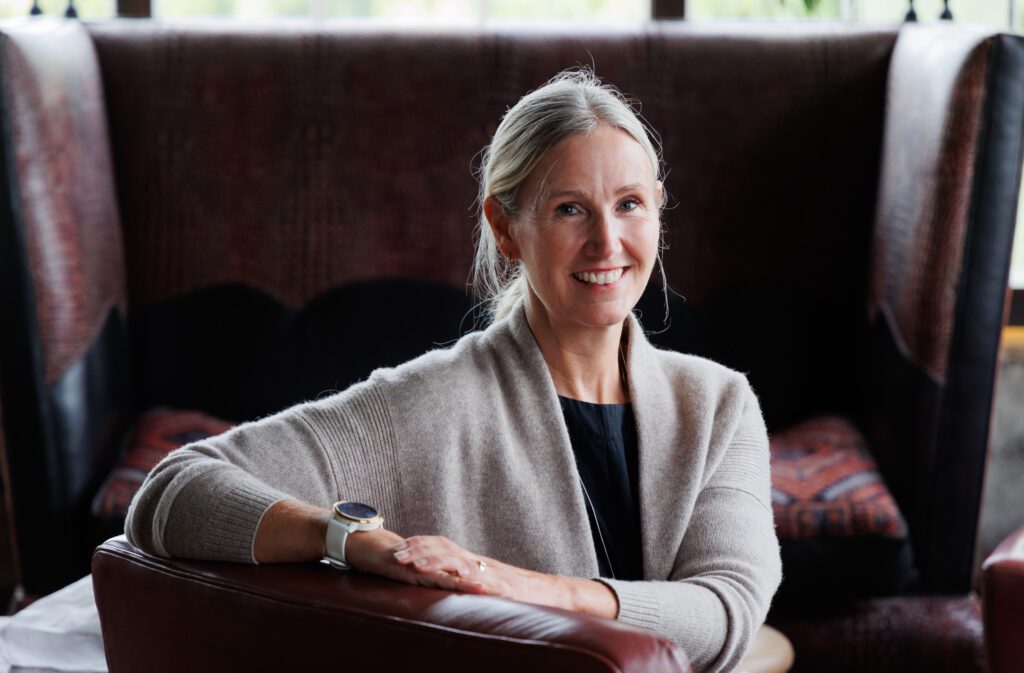
- Age: 49
- Residence: Bellingham (Edgemoor neighborhood)
- Occupation: Recently executive director of Bellingham Public Schools Foundation
- Experience: 5 years Whatcom County Planning Commission
Question #1 (Homelessness)
- The primary cause of homelessness is housing affordability; declared a public health emergency by our City and County councils.
- A monthly name-based census is a best-practice metric for tracking trends as we prioritize resources, pilot programs, and understand effectiveness. I would implement this immediately.
- There is no one “best” shelter. We need a variety of options including emergency shelters, transitional and permanent low-income housing, and, best of all, homelessness prevention (e.g. rental assistance).
- “Campers” need legal spaces with access to services. We can be progressive while upholding essential rules and norms. My commitment is to the safety and well-being of all. We need to fund current effective programs, consistently apply existing laws, coordinate regional action and commit to more affordable housing. We all deserve safe places to call home.
Question #2 (Lake Whatcom)
We know that when we turn on the tap, our drinking water comes out clean. Not every community can say that. Toxic algae was found last year in Lake Whatcom for the first time ever. I’ll act by:
- Responsible, regional stewardship. More than 90% of the lake is outside city limits. A fully committed partnership with Whatcom County is essential to safeguarding our drinking water. I’ll closely align our programs, rule enforcement and efforts to protect remaining undeveloped lands.
- Increased land acquisition. Development is outpacing preservation. I’ll set measurable goals and look critically at what is holding us back from doing more.
- Pollution reduction. Lawns are major phosphorus sources. I’ll boost funding to incentivize native vegetation restoration on existing lawns and call for restrictions on new lawns.
Clean drinking water is invaluable. We must act boldly.
Question #3 (PeaceHealth services/local control)
The respected Lown Institute Hospital Index gives St. Joe’s an A for Patient Outcomes and Value – but just a C for Community Benefit. It is quantifiable that there is room to do better.
Currently PeaceHealth independently defines community benefit. As mayor, I’ll work with PeaceHealth leadership to better align their definition of benefit with actual community needs. Realistically, the mayor cannot change the internal structure of a regional entity. However, what I can do is use my office to urgently communicate our community’s needs to PeaceHealth, as well as to our statewide and federal legislators.
Many remember a time we felt more connected to St. Joe’s. I have already met twice with executive hospital leadership to start a dialogue about how the community and hospital can work better together. As mayor, I will make the critical work of reestablishing an authentic relationship a priority.
Question #4 (PeaceHealth tax-exempt status)
Recent events have eroded confidence in PeaceHealth. We are also right to be concerned about the acquisition and consolidation of local health care clinics and the impact on overall access to care and options for our community.
Ensuring that a nonprofit hospital is providing public benefit, in keeping with its charitable mission and its tax-exempt obligations, involves a combination of community engagement, oversight and advocacy:
- We need increased transparency about PeaceHealth’s financial operations, charitable activities, and community impact.
- We deserve accessible reporting on operations and community benefit programs with data on revenue, investments and reserves.
As mayor, I’ll ensure our community has a clear, objective picture of how much PeaceHealth is giving back in return for their tax-exempt status. This is the vital first step to inform this conversation.
Question #5 (Affordable housing)
We must invest in our planning department. Faster permitting times and reduced costs incentivize more housing construction across the continuum, which in turn eases prices and rents.
We should look at cities that are already doing this work well, using strategies like:
- Nimble, efficient permitting
- Significant partnerships with local land trusts
- Innovative public housing programs
- Pre-approved designs for middle housing, like townhomes
As mayor, I’ll ensure fees and incentives align with our infill, climate, and affordability goals. I want the people who work in Bellingham to be able to afford housing in Bellingham. This vision is shared by the environmentalists, builders, and advocates for equity and social justice who are supporting my campaign. I believe we can absolutely make well-designed housing affordable and preserve each neighborhood’s unique character.
Whatcom County Council at-large
Hannah Ordos
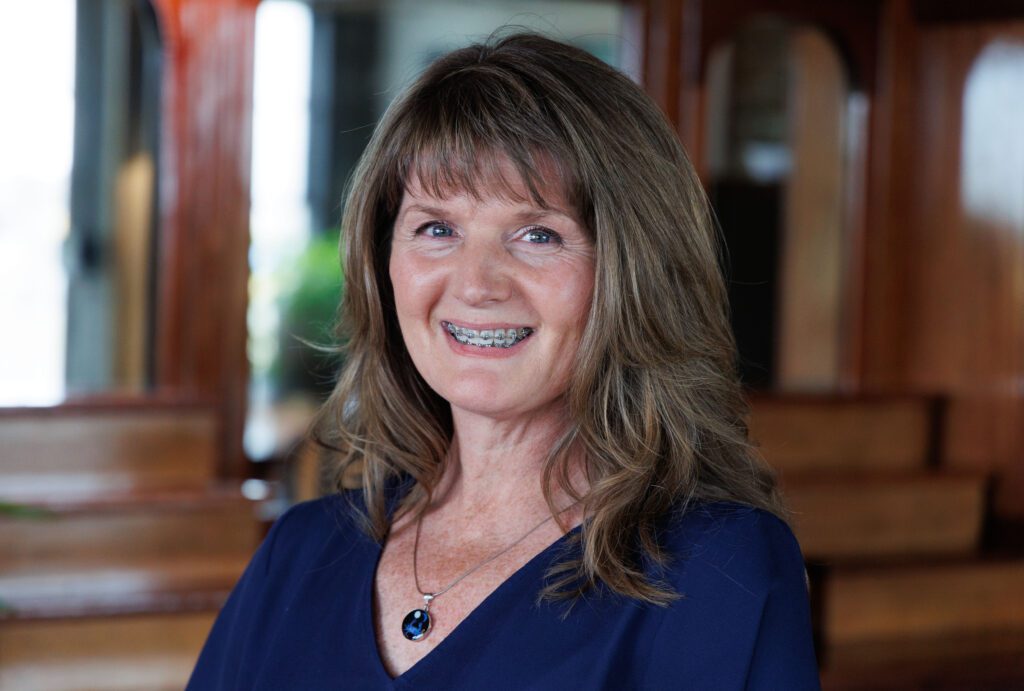
- Age: 50
- Residence: Sumas
- Occupation: Customer support manager for a nutritional supplement company
- Experience: Member, North Sound Behavioral Health Advisory Board
Question #1 (Homelessness)
Homelessness is a complex issue that can’t be solved with a one-size fits-all approach. If it was simple, we wouldn’t be watching the homeless numbers rapidly increase. Homelessness is an affordability issue, it is an opportunity issue, it is a lack of services issue. The presence of fentanyl has only exacerbated the crisis. We need to continue looking at sheltering models that have worked in other places and have a conversation about what really works. What I would like to see is continuing to support the programs that are producing positive outcomes, while potentially consolidating the programs that aren’t meeting their intended goals. Consolidation of these services allows us to use more resources to expand programs that have proven to be successful.
Question #2 (Lake Whatcom)
All our community members should have access to clean drinking water. Millions of dollars and an immense amount of time and resources have been dedicated to protecting the reservoir. The Lake Whatcom Management Program for 2020–2024 represents a collaboration between the City of Bellingham, Whatcom County and the Lake Whatcom Water and Sewer District with intent to act on this important issue. My top 3 actions are to: A: Assess the plan to ensure that the results have a measurable positive impact. B: Ensure the metrics used to gauge success are true indicators of the reservoir’s health. C: Engage the community, using clear and accurate science to be able to execute the necessary steps.
Question #3 (PeaceHealth services/local control)
I believe it’s important to address these important questions with real answers that are within the scope of what the Whatcom County Council can actually do. So often campaign promises are appealing but reach far beyond what the role actually allows. PeaceHealth plays an invaluable role in our community and service cuts pose a concern to every one of us. I do not currently see a collaboration between Whatcom County and the PeaceHealth Board. Our community would be better served by open communication between the Executive/Council and the PeaceHealth Board of Directors to be able to share priorities and concerns. As a private company, PeaceHealth faces the same obstacles as other employers in the area. They need for there to be affordable housing and accessibility to services to be able to attract and retain employees. These are things the council should be prioritizing.
Question #4 (PeaceHealth tax-exempt status)
The tax-exempt status of PeaceHealth is set by state and federal law, not at a local level. After cutting the palliative care program and the allergy, asthma clinic it was promising to see the board step up to independently fund reinstating and maintaining the palliative care program. Whatcom County needs increased access as well as more services in many areas. Behavioral health, substance abuse, preventative care, a variety of health care alternatives to name a few. It is unrealistic to think that PeaceHealth can provide them all, nor should they. I would like to see other organizations providing different types of care be able to be successful in Whatcom County. It would be a discussion worth having.
Question #5 (Affordable housing)
Affordable housing can take on different meanings based on whether we are talking about our homeless population or the cost of building in general. Zoning policies, land use policies, permitting regulations and competing priorities add layers of cost to an already complicated issue. We can take immediate action to reduce costs to build, while laying a solid framework for further expansion. Addressing zoning that hamstring development that fits the evolving needs of our communities is crucial. Like I mentioned previously, we need to be willing to have the conversation around reassessing programs that aren’t meeting stated goals and consolidate resources to maximize positive outcomes.
Jon Scanlon
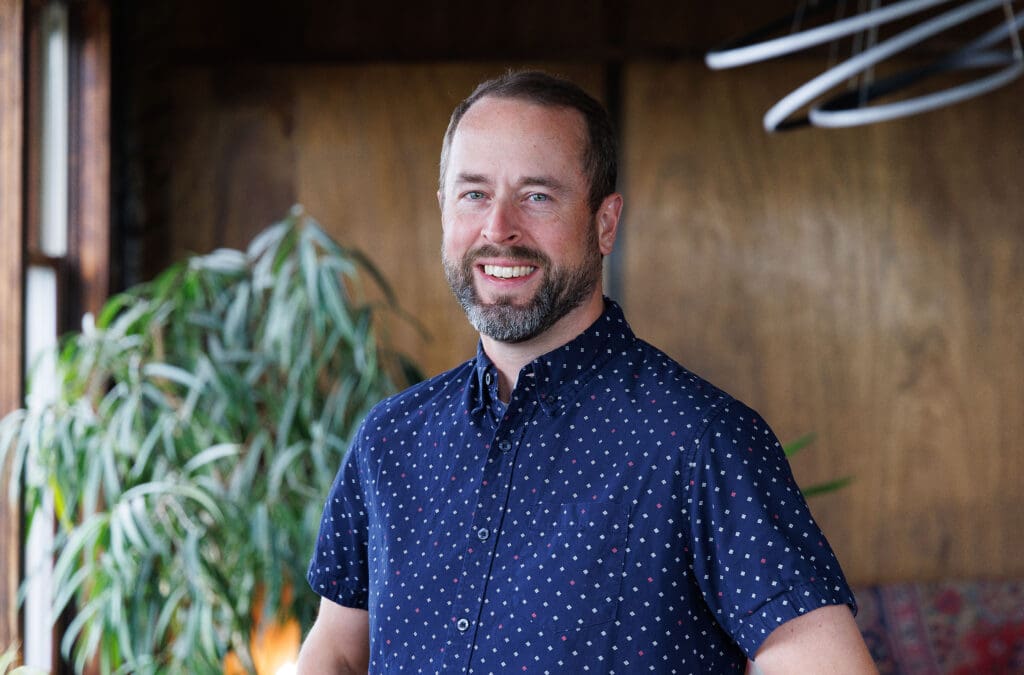
- Age: 43
- Residence: Bellingham
- Occupation: Consultant for conservation and Indigenous-led organizations
- Experience: Member, City of Bellingham Community Development Advisory Board; board member, RE Sources
Question #1 (Homelessness)
Homelessness is a countywide issue. A range of issues impact homelessness locally — primarily the cost of and availability of housing, amplified by job loss, mental health, substance use disorder, and discrimination. I believe that we can end homelessness in Whatcom County by building a large coalition to support policy ideas such as The Big Lift proposal, temporary housing, permanently affordable housing, case management, wraparound services and programs that prevent homelessness, such as eviction prevention and rental assistance. I currently serve on a City of Bellingham commission that helps with affordable housing and homelessness programs and I look forward to working on these issues countywide.
Question #2 (Lake Whatcom)
Everyone deserves access to clean drinking water. Improving Lake Whatcom water quality requires a strong partnership between Whatcom County and the City of Bellingham. The best way to deliver clean, cold drinking water is by increasing and protecting forest canopy in the Lake Whatcom watershed. I support continued acquisition of land in the Lake Whatcom watershed to protect forests and improve water quality. I also support policies that increase housing density in cities and Urban Growth Areas outside of the Lake Whatcom watershed so that we can decrease pressure to build within the watershed. Lastly, joint city and county advocacy can help to prevent recent ill-advised state logging plans in the Lake Whatcom watershed.
Question #3 (PeaceHealth services/local control)
The health care marketplace is not delivering the health care needs in Whatcom County. Rural communities have lost their local access to family practice providers, too many people have to travel long distances for specialty care, and PeaceHealth has cut some local services. We need more competition in our local health care market. One idea that may help is the creation of a Public Hospital District. There are 56 Public Hospital Districts across our state. Some districts support hospitals and others support emergency services, urgent care, primary care, nursing homes or public health messaging and educational programs. A Public Hospital District is one way for a community to decide how to invest in local health care needs.
Question #4 (PeaceHealth tax-exempt status)
Bellingham has considered the tax question in the past, and that remains a city issue. I would like to explore solutions to Whatcom County’s health care needs. County Council, which also acts as the County Health Board, has a role to play. I would like to start with a survey of Whatcom County health care needs to identify gaps in services and propose solutions. As mentioned above, one potential mechanism to add health care services to our community is by creating a Public Hospital District. In San Juan County and in Point Roberts, hospital districts help deliver primary care to rural areas. In Skagit County, all three hospitals are part of hospital districts. Other counties are exploring hospital districts and we can learn from their efforts.
Question #5 (Affordable housing)
Whatcom County has an affordable housing crisis. We need a variety of policy, budget, and legislative changes to address affordable housing including: new funding and additional county government staff to support affordable housing, more tiny home villages and ADUs, support for renters, eviction prevention programs, permitting reform, zoning changes, and planning policies that promote dense, bike/pedestrian and transit-oriented neighborhoods in cities and Urban Growth Areas outside of floodplains and the Lake Whatcom watershed. I will work with others to develop a comprehensive approach. I’ve spent my whole career building large coalitions to advocate for policy change, and I’ll bring that experience to Whatcom County Council.
Whatcom County sheriff
Doug Chadwick
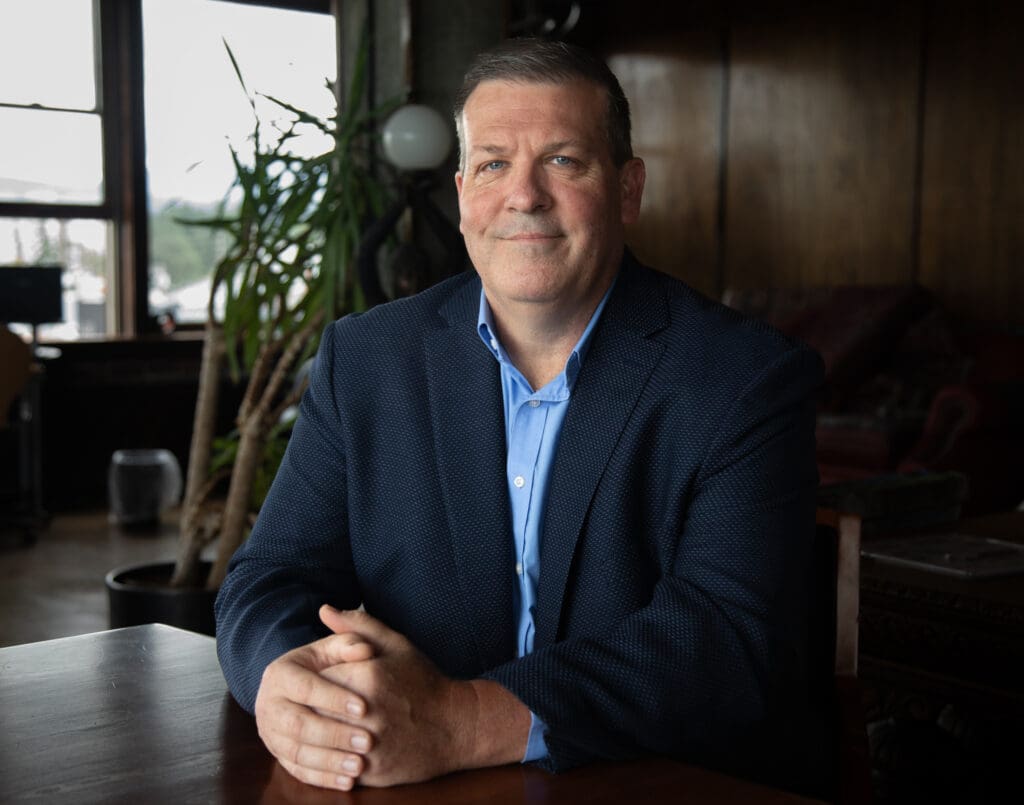
- Age: 53
- Residence: Bellingham
- Occupation: Whatcom County undersheriff
- Experience: 29 years in Whatcom County Sheriff’s Office
Question #6 (Community-based services)?
I would first solicit community input as it relates to community-based services and the impact those services have on public safety. While I support community-based programs to help those in need of income support, stable housing and treatment, these programs are outside the scope of the position of sheriff. I’ll need to focus on the challenging and diverse law enforcement, corrections, and emergency management services that are the primary responsibilities of the Sheriff’s Office.
I would hold several town hall meetings to seek the community’s thoughts about public safety. I’d create a Sheriff’s Advisory Committee to enhance community outreach and public safety services.
We’ll focus on the intersection between law enforcement and the delivery of services to help those in crisis. This includes the Behavioral Health Deputy and Co-Responder programs, which partner behavioral health specialists with deputies to provide crisis services to people where they are. I would continue to support other diversion programs that reduce incarceration and recidivism, such as LEAD, GRACE and the Crisis Stabilization Center.
I would work with the health department and corrections medical staff to provide 24/7 medical, mental health and substance use disorder services within both the main jail and the Work Center.
Funding from both the County Council and the state Legislature could provide navigators to assist those released from jail with temporary housing and connections to treatment and other service providers. I would also seek funding for a Homeless Navigation Center, mitigating the risk of those released from jail returning to the behaviors that led to their arrest and incarceration.
Question #7 (New jail)
Yes. The Whatcom County Jail has been inadequate for decades. The jail infrastructure is failing with increased frequency, creating safety issues for both offenders and staff. We need to build an appropriately sized, safe and humane jail that best serves and meets the needs of offenders, correctional staff and the community.
The sheriff is responsible for operating the jail, while the Executive and County Council are responsible for funding, building and maintaining the facility. Recent failures of the elevators and door locks create safety and emergency response concerns for those in custody and correctional staff.
The current jail’s configuration and limited space has resulted in a lack of services to treat and rehabilitate offenders. In addition, those that commit crimes in our communities are not being held accountable. When police can’t arrest suspects and book them into jail, they are unable to seek justice for victims, help our most vulnerable and hold those that commit crimes accountable.
I believe that the community is no longer debating treatment OR accountability, but wants treatment AND accountability. We need increased services to treat both mental health and substance use disorders AND we need a new jail to keep our communities safe and hold those that prey on others accountable.
The new jail needs to include adequate space for medical, mental health and substance use disorder treatment. Together we will design and build an appropriately sized jail that is safe and humane for offenders and corrections staff.
Question #8 (Law enforcement training)
As sheriff, I would continue to put a strong emphasis on training throughout the organization. In response to Initiative 940, law enforcement is required to obtain violence de-escalation and mental health training. The Sheriff’s Office has also increased training and resources to improve officer safety and wellness. By recognizing the trauma that peace officers experience, we can provide resources to improve their mental health, which results in better law enforcement officers.
New general authority peace officers must complete a minimum of 200 hours of violence de-escalation and mental health in the Basic Law Enforcement Academy. Current law enforcement officers must complete 40 hours of continuing de-escalation and mental health training every three years.
The Sheriff’s Office regularly trains deputies in defensive tactics, force response (including verbal control and de-escalation), use of nonlethal alternatives/equipment, decision making exercises and emergency first aid/CPR.
To recruit and retain professional peace officers, the county must be competitive in the regional market. I’ll advocate for competitive wages, benefits, and safe working conditions for Sheriff’s Office employees. To attract quality employees to our area, we must provide wages that allow people to rent or buy a home and provide for their families.
As your sheriff, I will ensure transparency, accountability, and community outreach to maintain public trust. Together we can and will make Whatcom County a safer place for all, where everyone is treated with dignity and respect.
Donnell “Tank” Tanksley
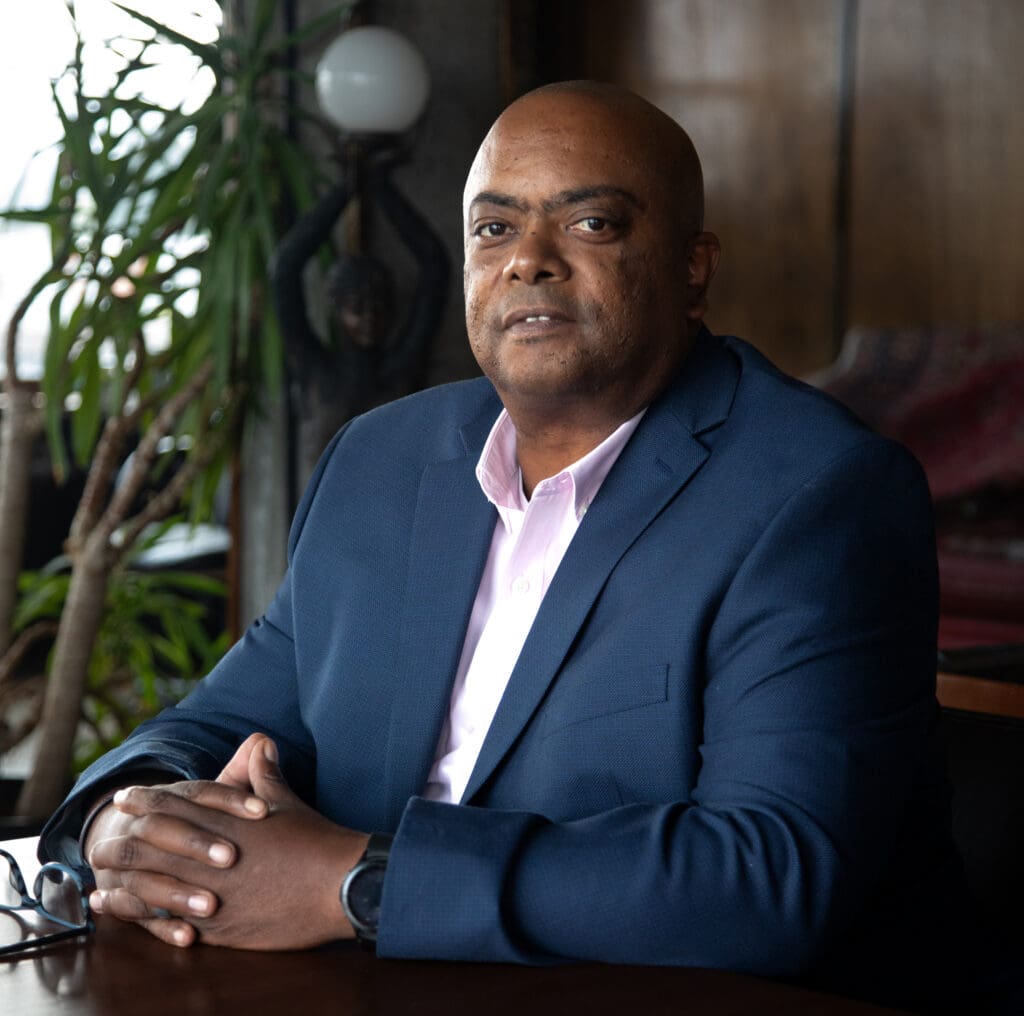
- Age: 55
- Residence: Custer
- Occupation: Blaine police chief
- Experience: 30 years in law enforcement; 22 years in the military
Question #6 (Community-based services)?
I have developed strong relationships with community-based services and public health representatives throughout Whatcom County. Building on these relationships and identifying gaps in service and treatment will be a priority to ensure we are collectively reducing traumatic experiences. Although I cannot directly allocate funding outside the Sheriff’s Office, I will strongly advocate for additional legislative financing of these systems and services. I will continue to support investments such as the $63 million-dollar investment from the state legislature for Law Enforcement Assisted Diversion (LEAD) programs. The Whatcom LEAD program is one of the premier LEAD programs in the state. The program’s aim is to lead people out of the criminal justice system and into intensive case management where those who are dealing with behavioral health challenges can have their needs met appropriately. I will also continue to support the work of the Whatcom County Health and Community Services, Response Systems Division. In addition, as a member of the newly formed Board of Judicial Administration (Washington State Administrative Office of the Courts), Alternatives to Incarceration Task Force, I am uniquely in a position to collaborate with stakeholders statewide to assess current incarceration alternative practices, estimate costs to make these services available, and pursue legislative or other funding as needed. It is equally important to perform a thorough assessment of the operations and systems within the entire Sheriff’s Office to see what is working, what needs to be fixed, and how we can improve those services and systems.
Question #7 (New jail)
This is a complex question that I will attempt to answer briefly, yet concisely. We need a new jail; our current facility is decades old and seemingly neglected. We need to invest a substantial amount of time and money into reducing recidivism and preventing people from going to jail in the first place. Law enforcement cannot set the parameters around pretrial detention or bail amounts. However, we have the authority to work in partnership with other agencies (governmental and non-governmental) to reduce the number of incarcerated people. We must divert where appropriate while maintaining public safety and quality of life. Part of the diversion process includes increased accessibility to affordable housing, health care, transportation, employment, and educational opportunities. There should not be a not a one-size fits all approach. In addition, as a community, we must proactively prevent crime rather than react. Regarding the current jail, it is undisputed that we need a new one. We also need significant investments in pre-incarceration, incarceration, and post-incarceration services and resources. A point of emphasis: We must ensure we have adequate health/dental services and facilities for those who are incarcerated and provide literacy assistance support, financial literacy support, housing assistance support, employment support and educational opportunity support before leaving any temporary incarceration. Equally important is ensuring we have mentors with lived experience to assist released individuals at the point of release.
Question #8 (Law enforcement training)
As Sheriff, I will ensure all employees perform their jobs professionally, empathetically, and constitutionally. All employees will be held accountable. I am fully committed to community engagement, transparency and accountability. In terms of rebuilding trust with those who may have had negative experiences with law enforcement — that work starts at the top. We need a Sheriff who truly understands the trauma of negative experiences with law enforcement on community members. I am one of those people with lived experience. I also recognize that healing takes time. And, because healing takes time, no prescriptive mechanism fits every person. Healing and reconciliation often require a change in culture to build community trust. I am committed to being a culture change agent and creating an administration with shared community values. I am committed to increasing the level of training for all members of the Sheriff’s Office. Specifically, I am a certified Fair and Impartial Policing Instructor and have taught the course jointly to the Whatcom County Sheriff’s Office, and independently to multiple agencies up and down the I-5 corridor, including three sessions within the past year to Skagit County Sheriff’s Office Corrections Division. The curriculum is grounded in four principles: The science of bias, how implicit biases can impact a person in their professional capacity, the consequences of biased decision-making and skills to reduce and manage biases. Expanding training in mental health responses, de-escalation, and crisis intervention is achievable. Every deputy should be fully certified in crisis intervention. I aim to work with community partners and the Criminal Justice Training Commission to create a Whatcom County specific course for our first responders and community caretakers.

